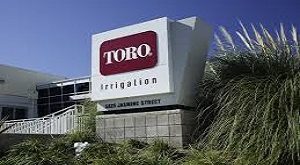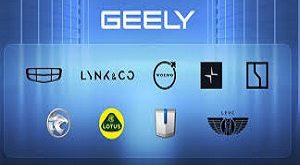Introduction
Verizon Communications Inc., a global leader in telecommunications, has profoundly transformed the way individuals and businesses connect, communicate, and interact in the digital landscape. Founded in 2000, Verizon has grown into one of the largest telecommunications companies in the United States, providing an extensive range of services including wireless communications, broadband, and television. This comprehensive article explores Verizon’s history, technological advancements, market strategies, challenges, and future prospects, highlighting its commitment to innovation and customer satisfaction.
1. Historical Background
1.1 Founding and Early Years
Verizon Communications was established in 2000 through the merger of Bell Atlantic Corp. and GTE Corp., creating a telecommunications powerhouse. The name “Verizon” is derived from the Latin word “veritas,” meaning truth, and “horizon,” symbolizing the company’s commitment to delivering truthful service and expanding its reach.
The merger positioned Verizon as a leading provider of telecommunications services in the United States. The company initially focused on landline services but quickly recognized the growing demand for wireless communication. As a result, Verizon Wireless was launched, becoming a crucial part of the company’s portfolio.
1.2 Growth and Expansion
Throughout the early 2000s, Verizon experienced significant growth and expansion. The company invested heavily in infrastructure and technology, establishing a robust wireless network that would become a hallmark of its success. In 2004, Verizon Wireless acquired AWS Wireless and the following year, it introduced its high-speed internet service, Verizon FiOS, providing fiber-optic communication to residential customers.
Verizon’s commitment to innovation was further solidified in 2009 when it announced its plans to build a 4G LTE network, which would later set the standard for mobile broadband connectivity in the United States. This network rollout was a pivotal moment in the company’s history, allowing Verizon to lead the market in wireless data services.
2. Product and Service Offerings
2.1 Wireless Services
Verizon Wireless is one of the largest wireless providers in the United States, offering a comprehensive range of services, including:
- Mobile Plans: Verizon provides various mobile plans catering to different customer needs, including unlimited data plans, family plans, and prepaid options.
- Devices: Verizon offers a wide selection of smartphones, tablets, and wearable devices, collaborating with leading manufacturers such as Apple, Samsung, and Google.
- 5G Network: The company has been at the forefront of the 5G rollout in the U.S., offering high-speed connectivity with low latency, enabling advanced applications such as augmented reality, smart cities, and the Internet of Things (IoT).
2.2 Broadband and Internet Services
In addition to wireless services, Verizon offers broadband and internet services through its FiOS and DSL offerings:
- FiOS: Verizon FiOS is a fiber-optic broadband service that provides high-speed internet, television, and digital voice services. FiOS has been recognized for its superior performance and reliability compared to traditional cable services.
- DSL Services: For areas where fiber-optic service is unavailable, Verizon provides Digital Subscriber Line (DSL) internet, offering reliable broadband connectivity.
2.3 Business Solutions
Verizon offers a wide range of business solutions, helping companies enhance their communications and operational efficiency:
- Enterprise Mobility: Verizon provides solutions for mobile device management, fleet tracking, and secure connectivity for businesses, enabling them to manage their operations effectively.
- Cloud Services: Verizon offers cloud-based solutions, including data storage, application hosting, and disaster recovery services, allowing businesses to scale their operations securely.
- IoT Solutions: Verizon’s IoT offerings empower businesses to harness the power of connected devices, enabling smarter operations and data-driven decision-making.
3. Technological Innovations
3.1 Network Infrastructure
Verizon has consistently invested in its network infrastructure to ensure high-quality service and reliability. The company’s advanced technology includes:
- 4G LTE Network: Verizon was one of the first companies to launch a nationwide 4G LTE network, providing high-speed data services and laying the groundwork for future innovations.
- 5G Technology: Verizon has been a leader in the deployment of 5G technology, focusing on enhancing network capacity, reducing latency, and enabling new applications in various sectors, from healthcare to transportation.
3.2 Research and Development
Verizon’s commitment to innovation is reflected in its substantial investment in research and development. The company operates multiple technology labs, focusing on emerging technologies such as:
- Artificial Intelligence: Verizon leverages AI to enhance customer service, optimize network performance, and develop smart solutions for businesses.
- Edge Computing: The company is exploring edge computing solutions to improve data processing speeds and reduce latency, particularly for IoT applications.
- Smart City Initiatives: Verizon collaborates with municipalities to develop smart city solutions that enhance urban living through connected infrastructure and services.
4. Market Position and Competition
4.1 Competitive Landscape
Verizon operates in a highly competitive telecommunications market, facing competition from several major players, including:
- AT&T: One of Verizon’s primary competitors, AT&T offers similar services, including wireless, broadband, and entertainment solutions.
- T-Mobile: Following its merger with Sprint, T-Mobile has become a significant competitor in the wireless space, focusing on aggressive pricing and innovative services.
- Cable Companies: Companies like Comcast and Charter Communications compete with Verizon in the broadband and television markets, challenging the company’s market share.
4.2 Customer Base
Verizon serves a diverse customer base, including individual consumers, small businesses, and large enterprises. The company’s focus on customer satisfaction and service quality has contributed to its strong brand loyalty.
5. Financial Performance
5.1 Revenue Growth
Verizon has consistently demonstrated robust revenue growth, driven by its wireless services and broadband offerings. The company’s financial performance reflects its ability to adapt to market trends and invest in new technologies.
5.2 Stock Performance
Verizon is publicly traded on the New York Stock Exchange under the ticker symbol “VZ.” The company has a reputation for providing stable dividends, attracting income-focused investors.
6. Challenges and Opportunities
6.1 Regulatory Environment
The telecommunications industry is subject to extensive regulation at both the federal and state levels. Verizon must navigate complex regulatory frameworks that govern pricing, competition, and consumer protection.
6.2 Technological Disruption
The rapid pace of technological advancement presents both challenges and opportunities for Verizon. The company must continuously innovate to stay ahead of competitors and meet evolving consumer demands.
6.3 Market Saturation
In the U.S. wireless market, saturation poses a challenge for growth. Verizon must explore new revenue streams, such as IoT services and business solutions, to sustain its growth trajectory.
7. Corporate Social Responsibility
7.1 Environmental Initiatives
Verizon is committed to sustainability and has implemented various environmental initiatives, including:
- Renewable Energy: The company aims to source renewable energy for its operations and has made significant investments in solar and wind energy projects.
- Reducing Emissions: Verizon has set ambitious targets to reduce its greenhouse gas emissions, focusing on energy efficiency and sustainable practices.
7.2 Community Engagement
Verizon actively engages with local communities through charitable initiatives and partnerships. The company supports educational programs, disaster relief efforts, and initiatives that promote digital inclusion.
8. The Future of Verizon Communications
8.1 Strategic Vision
Verizon’s strategic vision focuses on enhancing connectivity, driving innovation, and providing exceptional customer experiences. The company aims to maintain its leadership position in the telecommunications industry while exploring new growth opportunities.
8.2 Investment in 5G
Verizon plans to continue its investment in 5G technology, expanding coverage and enhancing service quality. The company recognizes the transformative potential of 5G in various sectors, from healthcare to autonomous vehicles.
8.3 Digital Transformation
Verizon is committed to digital transformation, leveraging emerging technologies to improve its operations and customer engagement. The company aims to enhance its online presence, streamline customer service, and develop new digital products and services.
Conclusion
Verizon Communications has established itself as a leader in the telecommunications industry, driven by its commitment to innovation, customer satisfaction, and corporate responsibility. With a rich history of growth and technological advancements, the company is well-positioned to navigate the challenges and opportunities of the digital age. As Verizon continues to invest in its network infrastructure, expand its service offerings, and engage with communities, it remains dedicated to connecting people and businesses in an increasingly connected world. The future of Verizon Communications is bright, with a focus on delivering exceptional value to its customers and stakeholders while embracing the transformative power of technology.


